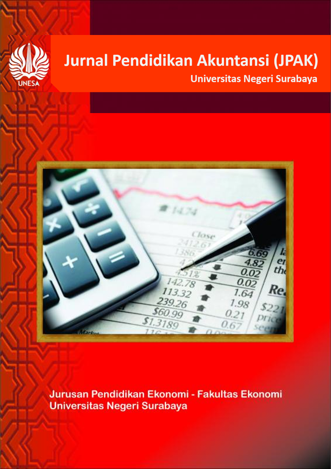Pengaruh Motivasi Belajar, Efikasi Diri, dan Teman Sebaya Terhadap Kemandirian Belajar Akuntansi Mahasiswa Pendidikan Akuntansi Universitas Negeri Surabaya
DOI:
https://doi.org/10.26740/jpak.v10n2.p162-175Keywords:
Self-regulated learning; learning motivation; self-efficacy; peersAbstract
Self-regulated learning is an important aspect in learning, especially self-regulated learning of accounting. But in reality, students often lose their self-regulated learning when facing difficulties in their learning activities. Researcher conducted this study in order to determine and examine the influence of learning motivation, self-efficacy, and peers on self-regulated learning of accounting, either simultaneously and partially. This study was classified as causality research with quantitative approach. The population in this study were students of Accounting Education 2018-2019, State University of Surabaya, totaling 116 students. Proportional random sampling method, the researcher used as a sampling technique to obtain a sample of 90 respondents. Research data was collected through the distribution of questionnaires. Hypothesis testing was done by using multiple linear regression method. The results of this research analysis concluded: 1) Learning motivation with tcount = 7,791 > ttable = 1,988 affected self-regulated learning of accounting, 2) Self-efficacy with tcount = 2,043 > ttable = 1,988 affected self-regulated learning of accounting, 3) Peers with tcount = 3,173 > ttable = 1,988 affected self-regulated learning of accounting, 4) Learning motivation, self-efficacy, and peers with Fcount = 59,255 > Ftable = 8,558 simultaneously affected self-regulated learning of accounting.
Downloads
Downloads
Published
How to Cite
Issue
Section
License
Authors who publish with this journal agree to the following terms:
- Authors retain copyright and grant the journal right of first publication with the work simultaneously licensed under a Creative Commons Attribution License that allows others to share the work with an acknowledgement of the work's authorship and initial publication in this journal.
- Authors are able to enter into separate, additional contractual arrangements for the non-exclusive distribution of the journal's published version of the work (e.g., post it to an institutional repository or publish it in a book), with an acknowledgement of its initial publication in this journal.
- Authors are permitted and encouraged to post their work online (e.g., in institutional repositories or on their website) prior to and during the submission process, as it can lead to productive exchanges, as well as earlier and greater citation of published work (See The Effect of Open Access).

Jurnal Pendidikan Akuntansi (JPAK) is licensed under a Creative Commons Attribution-NonCommercial 4.0 International License.
 Abstract views: 968
,
Abstract views: 968
, PDF Downloads: 1146
PDF Downloads: 1146



